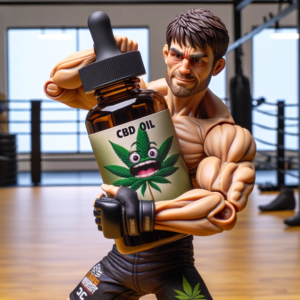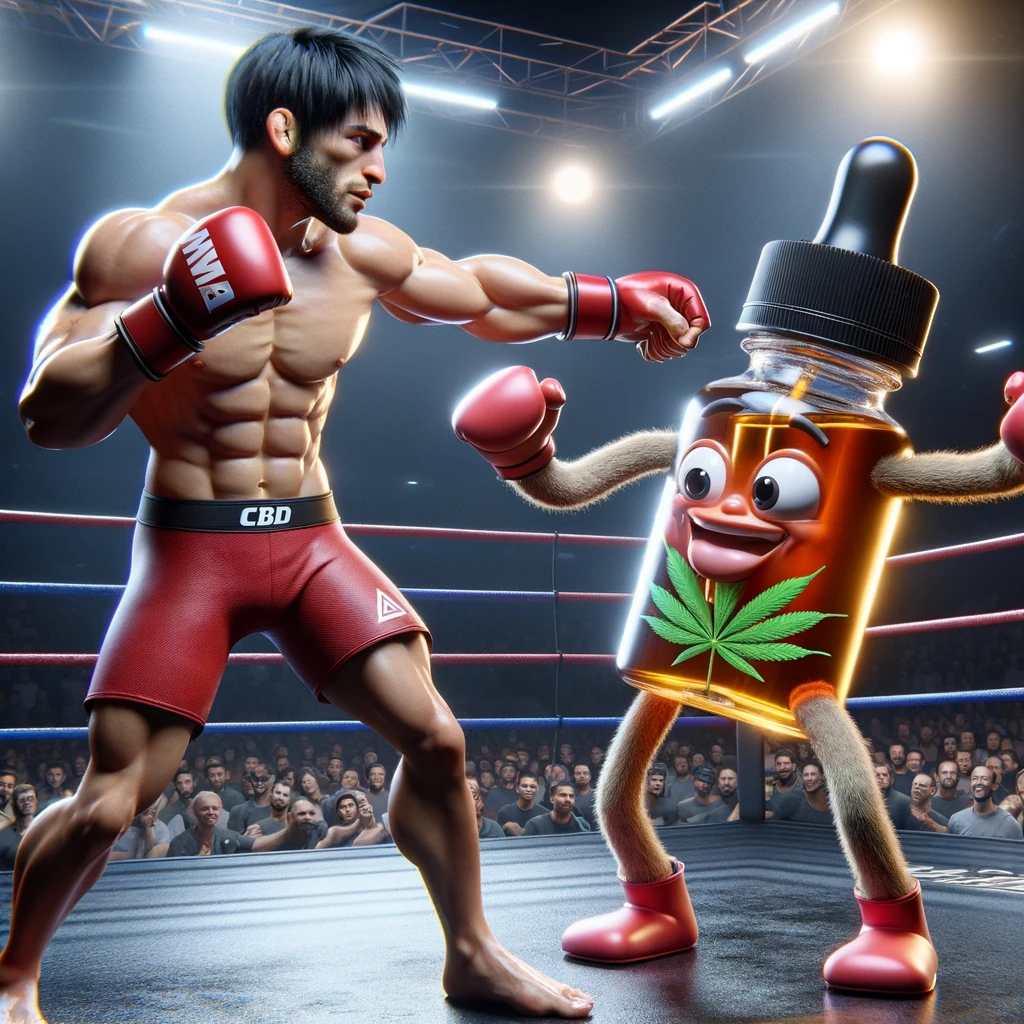Introduction to CBD in Extreme Sports
In the dynamic world of extreme sports, where athletes continually push their physical limits, the quest for safe and effective pain management and recovery strategies is paramount. This article delves into Cannabidiol (CBD) as a groundbreaking solution in this realm.
This is especially true for MMA fighters. Because mixed martial arts (MMA) is a physically demanding discipline, participants frequently struggle with injuries and look for efficient ways to heal. Cannabidiol is one organic substitute that is becoming more popular (CBD). Due to its ability to accelerate injury healing, CBD—which is well-known for its anti-inflammatory and pain-relieving qualities—is increasingly being chosen by athletes, particularly mixed martial arts competitors. This in-depth article explores the many advantages of CBD for mixed martial arts athletes, giving you the knowledge, you need to decide intelligently whether to include this natural treatment in your rehabilitation process.
Legal Landscape: CBD in the Athletic World
Since 2018, the World Anti-Doping Agency (WADA) has excluded CBD from its list of prohibited substances, both in and out of competition. This significant shift acknowledges CBD’s potential in sports without the psychoactive effects of THC, a still-banned substance.
However, for fighters the Ultimate Fighting Championship (UFC) has made significant changes to its policy regarding the use of cannabis by fighters.
Removal of THC from Banned Substances List: The UFC has excluded THC (Tetrahydrocannabinol), the primary psychoactive compound in cannabis, from its list of banned substances. This exclusion applies except in scenarios where an athlete uses THC intentionally for performance-enhancing purposes.
Policy on Positive THC Tests: Positive tests for THC are no longer automatically considered a violation of the UFC’s anti-doping policy. This change acknowledges the complexities in detecting THC use and its correlation with in-competition impairment. Jeff Novitzky, UFC’s senior vice president of athlete health and performance, emphasized the importance of differentiating between out-of-competition and in-competition use. The aim is to focus on what an athlete consumes on the day of the fight rather than prior usage.
Status of Other Cannabinoids: Alongside THC, other naturally occurring cannabinoids, including CBD (Cannabidiol), have also been removed from the anti-doping list. The UFC recognizes that these substances, commonly found in various CBD products used by athletes, do not provide a significant performance advantage nor pose health and safety risks in competitions.
UFC’s Engagement with CBD Research: The UFC has partnered with Aurora Cannabis for clinical trials to study the effects of CBD on wound care, recovery, injury, pain, and inflammation, indicating a proactive approach towards understanding and utilizing the potential benefits of CBD in sports.

Understanding CBD: More Than Just Pain Relief
CBD is a non-psychoactive compound in cannabis, functioning within the body’s endocannabinoid system to regulate neuronal activity. This regulation is key in managing pain and inflammation, crucial concerns for athletes subjecting their bodies to high stress and strain.
The Multifaceted Benefits of CBD for Athletes
- Pain Management: CBD shows promise in alleviating musculoskeletal pain and stiffness, a common aftermath of intense physical activity. This is an all-too-common challenge for extreme athletes including cage fighters. The amount of punishment thy put their bodies through over a 3 month training camp can be enormous.
- NSAIDs Alternative: Given the risks associated with NSAIDs, CBD emerges as a safer option to manage exercise-related pain.
- Opioids Replacement: With the opioid crisis, CBD’s potential in long-term pain management, without the associated risks of addiction and overdose, is significant.
- Inflammation Reduction: CBD’s interaction with CB2 receptors plays a crucial role in reducing inflammation, a common issue in strenuous athletic activities.
- Gastrointestinal Relief: For athletes facing gut issues post-exercise, CBD might offer symptomatic relief by impacting intestinal inflammation. This was something that GSP suffered from in the lead up to his comeback fight back in 2017 against Michael Bisping. Of which he won the middleweight championship at UFC 217.
- Enhanced Sleep Quality: Improved sleep is vital for athletes’ recovery, and CBD’s potential in enhancing sleep quality is an area of growing interest. Because as we all know a good nights rest allows the body to repair itself.
Optimal Usage of CBD for Athletes
The market is replete with various CBD products, including capsules, oils, edibles, and topicals. The choice of product and consumption method can influence the onset and duration of effects. Starting with a low dose and gradually adjusting based on personal experience is advised, considering the lack of standardization in CBD products. One particular company that specializes in CBD for sports recovery is Quiet Monk CBD. With current fighters like Alan “Super Glue” Martinez and Nate “The Gator” Morse as spokesman and users of the products this company is becoming more recognized as leaders in this particular segment of the market.
Conclusion: The Future of CBD in Sports
While the science of CBD is still evolving, its current applications show immense potential in enhancing athletic performance by aiding in pain relief, reducing inflammation, and improving sleep. Athletes, however, must remain vigilant about product quality to avoid inadvertent doping violations.



